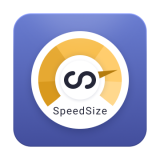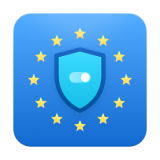“80% of an organization’s data is dark and untouched” - David Pier, IBM
Google announced a phasing out of third-party cookies support in Chrome in 2023. This news has met two opposite reactions:
- users are happy that they will have more control over their personal data
- marketers, data analysis specialists, and other people whose job relates to information get nervous about their future
But actually, when we talk about data and how we interact with it, not everything is so clear. That’s why today, we’ll talk about big data and the 3 paradoxes that are connected to it.
Privacy paradox
Key point: not many users actually take measures to prevent personal data leakage and reuse. People tend to build their relationships with businesses on trust rather than on a pragmatic risk analysis.
Let’s start with the way we share our data on the internet. According to the research, 67% of internet users are more concerned about data privacy than ever. 79% of users feel they have lost control over their personal information, and 81% believe their data is vulnerable.
However, if we look at peoples’ actions, we will notice that only a really small percentage of users really do something to stay safe on the internet. Most internet users don't bother much about using VPN, deleting cookies, or even changing passwords frequently.
This situation when our concerns are not reflected in behavior is called the privacy paradox.
According to researchers, we can split internet users into 3 categories:
- Privacy fundamentalists. Users that are very privacy-oriented and take actions to be anonymous.
- Privacy unconcerned. Users that don’t care about privacy issues at all.
- Privacy pragmatists. These users are in-between of the two previous groups and represent the majority of the internet users.
In general, users are much more sensitive to their medical, financial, and family information than they are about their product, brand consumption, or their media usage behavior. If any information from the first group leaks, it can lead to embarrassment and security problems. However, according to the privacy paradox, they still share such information because they mostly rely on trust rather than risk.
How does the privacy paradox affect your business growth?
To turn the situation in your favor, you should build customers' trust in your company and website. Here are some tips on this:
- Make privacy policy noticeable on your website. Even though most users don’t read such documents, in most cases, simply having a link to the policy will increase trust significantly.
- Display safety badges on checkout, like “verified by Visa” or “MasterCard SecureCode”. Customers find websites marked with these icons trustworthy.
- Show a contact phone number. Customers feel more secure when they know that they can reach you by phone in case of an emergency, say if the transaction fails.
- Follow GDPR/CCPA requirements. If you work with EU countries, it’s not only the law you must comply with but also a way to make users believe that their data is safe.
Information paradox
Key point: businesses use only 20% of the data they have due to outdated technologies. And the time spent reacting to information from different sources costs businesses $16MM per year on average.
The information paradox is one of the Stephen Hawking theories. He assumed that the information is stored on the boundary of the black hole, the event horizon. His idea was that all the information returned from the event horizon is chaotic and is useless for practical purposes.
Sounds strange and what does it have to do with business?
Well, the Kapta research found that 70% of interviewed CEOs point out the lack of meaningful data as their main issue. Yet, businesses use only 20% of the data they have, and the rest of it — is dark and untouched. So, the information paradox for businesses is that we spend thousands of dollars to generate, compile and maintain data, and we still think it’s not enough just because we don’t use most of this data. In a nutshell, big data is not equally useful data.
Here are some more interesting conclusions from the IDC report “The High Cost of Not Finding Information”:
- An average team member spends 36% of work time looking for and consolidating information from different sources.
- Knowledge Deficit (inability to find knowledge resources) costs your organization $5,850 per knowledge worker per year.
- Knowledge workers spend more time recreating existing knowledge than creating new, which costs you over $16MM per year on average.
The main problem here is that business often uses outdated technologies to work with data. Thus, the more data you have, the less reliable and valuable it is. So, to fix this paradox, you need to use new technologies, for example, NoSQL, to optimize your databases so you will be able to process and use all the data you have.
Information-action paradox
Key point: the more data about some trend we have, the less likely we will take a risk and act. In the decision-making process, the personality of the manager plays as big a role as the amount of information they have.
Finally, let’s talk about how we act based on the data we have. Logic suggests that the more data we have, the easier it is for us to make the right and informed decision. But as you already can guess, it’s not that simple. While we always talk about data-driven decisions, the information-action paradox states the more data about trends or customer segments we know, the less freedom to act we have. Here is what it looks like on the chart:
Business owners that are in the A point can act early because they don’t have that much of the information. They mostly see opportunities instead of risks. And vice versa, the entrepreneur in the B point sees more risks rather than opportunities and is more likely to wait and look for more information instead of taking action. Both of these approaches have their pros and cons, but they are the same in the fact that when there is a lack of information, our intuition, experience, feelings, and personality play a significant role.
So, how to make a thoughtful decision according to the information-action paradox?
You should find the balance between acting early enough to get around your competitors and getting a pause to reduce the impact of the psychology factor and understand what motivates the decision.
Any aspect of the information we share, gather, and use isn’t that simple and intuitive. But knowing these paradoxes, you can make changes to achieve the desired goals.












